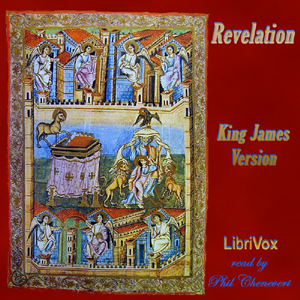The Book of Revelation, often known simply as Revelation or the Apocalypse, is the final book of the New Testament and occupies a central place in Christian eschatology. Written in Koine Greek, its title is derived from the first word of the text, apokalypsis, meaning “unveiling” or “revelation.” The author of the work identifies himself in the text as “John” and says that he was on Patmos, an island in the Aegean, when he was instructed by a heavenly figure to write down the contents of a vision. This John is traditionally supposed to be John the Apostle, although some historical-critical scholarship reject this view. Recent scholarship has suggested other possibilities including a putative figure given the name John of Patmos. Most modern scholars believe it was written around AD 95, with some believing it dates from around AD 70.
The book spans three literary genres: epistolary, apocalyptic, and prophetic. It begins with an epistolary address to the reader followed by an apocalyptic description of a complex series of events derived from prophetic visions which the author has seen. These include the appearance of a number of figures and images which have become important in Christian eschatology, such as the Whore of Babylon and the Beast, and culminate in the Second Coming of Jesus Christ. The obscure and extravagant imagery has led to a wide variety of interpretations: historicist interpretations see in Revelation a broad view of history; preterist interpretations treat Revelation as mostly referring to the events of the apostolic era (1st century), or—at the latest—the fall of the Roman Empire; futurists believe that Revelation describes future events; and idealist or symbolic interpretations consider that Revelation does not refer to actual people or events, but is an allegory of the spiritual path and the ongoing struggle between good and evil.
The Book of Revelation is the only apocalyptic document in the New Testament canon, although there are short apocalyptic passages in various places in the Gospels and the Epistles. (summary from Wikipedia)


Other Audiobook
Audiobook: Post Mortem: Essays, Historical And Medical
This 1922 collection of extensive essays comprises well written biographies of a few famous folk.
Audiobook: History of Iceland
“Iceland, the saga island, lying on the very borders of the unknown, has attracted much
Audiobook: Short Nonfiction Collection, Vol. 068
Twenty short nonfiction works in the public domain. “The Regulation of Time” and “Uniform Standard
Audiobook: Gulliver’s Travels
Comprised of four parts, Gulliver’s Travels documents the bizarre, yet fascinating voyages of Lemuel Gulliver
Audiobook: Tale of Mrs. LadyBug
Have you ever seen a LadyBug and wondered what the cute little bug with the
Audiobook: The Grizzly, Our Greatest Wild Animal
During the past thirty years I have had numerous experiences with the grizzly bear in
Audiobook: Trees Every Child Should Know
The best time to being to study the trees is to-day! The place to begin
Audiobook: Ships That Pass in the Night
This short novel by Beatrice Harraden, who was known for her work as a suffragist,
Audiobook: Elementary Theosophy
This book provides the basics of Theosophy and perhaps the beginning of a life long
Audiobook: His First and Last Appearance
The scene of the story is laid partly in Milwaukee, partly in New York. It
Audiobook: The Autobiography of St. Ignatius
This account of the life of St. Ignatius, dictated by himself to Father Gonzalez, is
Audiobook: Guest at the Ludlow and Other Stories
Bill Nye was a respected journalist who also became known as a humorist. His short